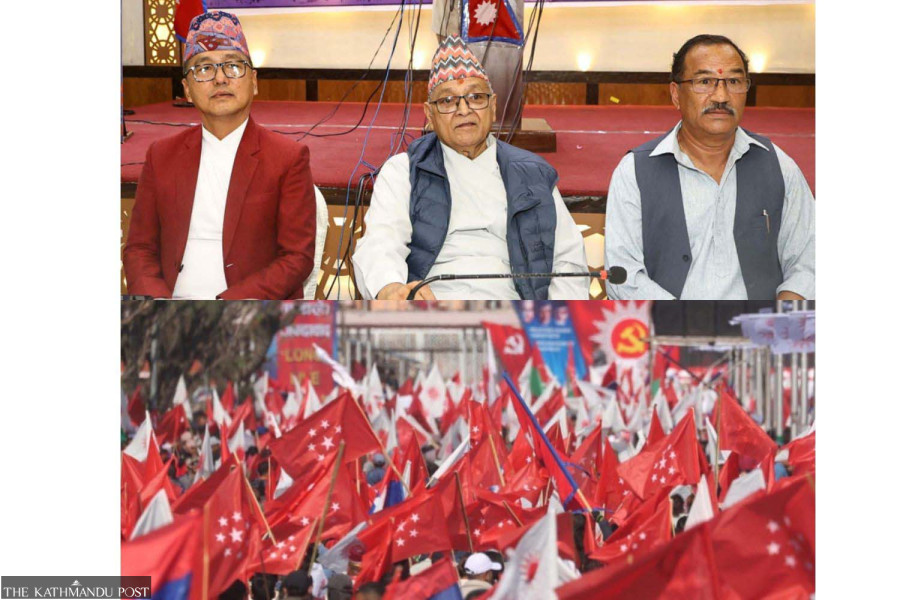Editorial
Stunted republic
As implementers of new order face discredit, the system they helped bring is being questioned too.
There could not have been a bigger contrast. As the country marked the 18th Republic Day last Thursday, pro-monarchy forces were banding together in Kathmandu for a rally to restore the Hindu kingdom. On the same day, the CPN-UML, the party of Prime Minister KP Sharma Oli and a solidly pro-republican outfit, took out its own rally, with Oli calling on his UML party cadres to ‘seize Kathmandu’. While both the gatherings were sparsely attended, the consensus was that the pro-monarchy rally was much bigger, with around 5,000 participants. The inability of the UML, the biggest elected communist force in the country, to summon even a couple of thousand protesters is perhaps a sign of its declining popularity. The common perception is that other big pro-republican parties like the Nepali Congress and the CPN (Maoist Centre) are also on a decline. The first Constituent Assembly elected in 2008 had formally abolished monarchy and established the new republican order. The assembly elected Ram Baran Yadav as the country’s first President, thereby ending the centuries-old tradition of the head of the state’s position being occupied by a hereditary monarch. Later, the 2015 national charter institutionalised the republic.
Yet people are increasingly disillusioned by the republican system and its political backers. A complaint one gets to often hear is that a single king is preferable to 10 entitled politicians with monarchical ambitions. For many Nepalis, this is more a sign of frustration with the new political class than it is a yearning for the return of monarchy. And yet, if the chief proponents of republicanism were capable of even a little reflection, they would ask why the monarchists have of late become so active. But these leaders, and Oli most notoriously, appear keener to demonise the pro-monarchy forces than to earn the public’s trust through their own action. The politicians of major parties argue that Nepal has achieved a lot under the new republican system, including greater representation of marginalised groups in state organs. This is true. But the country’s achievements under the republican order have also been undercut by our political leaders’ sense of entitlement. More and more people are (rightly) judging them based on what they do today, not the role they played in this or that revolution in the past.
The growing (though still limited) popularity of the pro-monarchy forces also owes to people’s tendency to hanker after a ‘benign dictator’ who can seemingly solve all of the country’s problems. In this quest conveniently forgotten is the erstwhile monarchs’ egregious suppression of democratic rights. Again, a big argument in favour of the republic was that no one should have a divine right to state power. In this egalitarian spirit, the sons and daughters of common folks have since served as heads of state, while the heads of governments and chiefs of executive and legislative bodies are directly or indirectly elected through popular vote. This is something to be celebrated. But people are dismayed when they see the kind of unaccountability, exclusion and corruption they blamed on monarchy being repeated by their elected representatives under the republican order. As the implementers of the order are being discredited, the system they helped bring about too is being questioned. Thus the biggest threat to the republic are not the resurgent pro-monarchy forces. It is the republican forces that have forgotten their solemn pledge to the people.




 10.12°C Kathmandu
10.12°C Kathmandu













